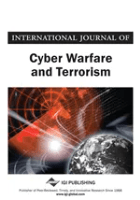
International Journal of Cyber Warfare and Terrorism
Scope & Guideline
Empowering Research on Digital Defense and Terrorism
Introduction
Aims and Scopes
- Cybersecurity and Cyber Warfare:
The journal emphasizes research on the methodologies, technologies, and frameworks needed to understand and combat cyber warfare, including the analysis of cyber attacks, defense strategies, and the implications for national security. - Terrorism Analysis and Prevention:
It explores various aspects of terrorism, including the socio-economic determinants, radicalization processes, and counter-terrorism strategies, with a focus on both qualitative and quantitative analyses. - Impact of Technology on Society:
The journal investigates how emerging technologies, such as artificial intelligence and the Internet of Things, influence societal behavior, security practices, and ethical considerations in the context of cyber warfare and terrorism. - Legal and Ethical Dimensions:
Research is directed towards understanding the legal frameworks governing cyber operations and terrorism, addressing issues such as intellectual property rights, international law, and ethical considerations in cyber engagements. - Social Dynamics and Public Perception:
The journal examines the social factors that influence the perception of cybersecurity and terrorism, including community responses to radicalization and the role of media in shaping public discourse.
Trending and Emerging
- Socio-Economic Factors in Terrorism:
Recent studies have focused on the socio-economic determinants of terrorism, indicating a trend towards understanding how economic conditions influence radicalization and violent behavior. - Agent-Based Modeling and Simulation:
There is a growing interest in using agent-based frameworks to model complex social phenomena, such as protests and crowd behavior during emergencies, indicating a shift towards more sophisticated analytical methodologies. - Artificial Intelligence and Ethics:
The integration of artificial intelligence in cybersecurity practices, particularly concerning ethical implications and data protection, is a prominent theme. This reflects broader societal concerns about privacy and the ethical use of technology. - Impact of Global Events on Radicalization:
Emerging research is increasingly linking global events, such as the COVID-19 pandemic, to shifts in radical behavior and terrorism, demonstrating the need to understand these phenomena in a rapidly changing world. - Cybersecurity in Critical Infrastructures:
There is a notable emphasis on the cybersecurity of critical infrastructures, such as transportation networks, highlighting the importance of protecting essential services from cyber threats.
Declining or Waning
- Traditional Warfare Perspectives:
Research that emphasizes conventional military strategies in the context of cyber warfare has decreased. The journal seems to be moving towards more nuanced discussions of cyber tactics rather than traditional military approaches. - Homogeneous Terrorism Studies:
There is a noticeable reduction in studies that focus solely on specific terrorist groups or ideologies without considering the broader context of technology and radicalization. The journal appears to be shifting towards a more integrated analysis of terrorism across various contexts. - Static Legal Frameworks:
Papers discussing static or traditional legal frameworks for cybersecurity and terrorism are less frequent. The focus is shifting towards dynamic and adaptive legal responses to the evolving nature of cyber threats. - Generalized Cybersecurity Practices:
There is a decline in publications that offer generalized approaches to cybersecurity measures. The journal is increasingly emphasizing tailored, context-specific strategies and frameworks.
Similar Journals
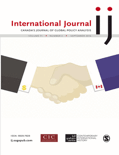
INTERNATIONAL JOURNAL
Fostering Critical Conversations on Global IssuesWelcome to the International Journal, a premier academic publication in the fields of Political Science and International Relations, published by SAGE Publications Ltd.. With a distinguished history dating back to 1981, this journal has become a vital resource for scholars and practitioners worldwide, offering insights into complex global issues and fostering critical discourse. As of 2023, it proudly holds a Q2 category ranking, reflecting its influential position within the academic community, as evidenced by its Scopus ranking of #288 out of 706 in the related fields. The journal provides non-open access articles, ensuring high-quality peer-reviewed content that is accessible through institutional subscriptions. By maintaining rigorous editorial standards and promoting interdisciplinary research, International Journal continues to contribute significantly to the evolution of political theory and international studies, making it essential reading for anyone committed to understanding the dynamics shaping our world today.
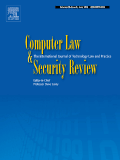
Computer Law & Security Review
Navigating the Nexus of Technology and LawComputer Law & Security Review, published by Elsevier Advanced Technology, is a premier academic journal focused on the intersection of technology, law, and cybersecurity. Since its inception in 1985, the journal has established itself as a vital resource for researchers, professionals, and students interested in the rapidly evolving landscape of information technology and legal frameworks. With an impressive Q1 ranking in both the law and miscellaneous business categories and a significant 95th percentile ranking in the field of social science law, this journal is recognized for its high-impact contributions to the field. It covers essential issues pertaining to computer law, data protection, intellectual property, and regulatory compliance, supporting academic rigor and practical application. Although the journal does not offer open access, it remains influential in shaping policy and practice by providing insightful analyses and fostering discussions that drive innovation and reflect contemporary challenges in the digital age. For those passionate about the convergence of law and technology, Computer Law & Security Review is an indispensable academic publication.
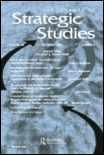
JOURNAL OF STRATEGIC STUDIES
Illuminating Paths in Political Science and International RelationsJOURNAL OF STRATEGIC STUDIES is a premier academic journal dedicated to the fields of political science and international relations, published by Routledge Journals, Taylor & Francis Ltd. Established in 1978, this journal has built a strong reputation for disseminating high-quality research and theoretical contributions that drive innovation and scholarship in strategic studies. With a commendable impact factor that places it in the Q1 quartile for Political Science and International Relations, and Q2 quartile for Sociology and Political Science, the journal ranks among the top publications with notable Scopus rankings that reflect its influence and reach. The journal’s comprehensive scope encompasses a wide array of topics, from security studies to diplomacy, making it an invaluable resource for researchers, professionals, and students alike. Although it operates on a subscription-based access model, the journal's commitment to advancing knowledge in strategic studies ensures that it remains a vital platform for scholarly dialogue and exploration. Join the community of scholars contributing to cutting-edge research through this leading journal.
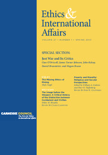
Ethics & International Affairs
Illuminating the Intersection of Ethics and Global DynamicsEthics & International Affairs is a leading peer-reviewed journal published by Cambridge University Press, offering critical insights at the intersection of ethics, philosophy, and international relations. Established in 1987 and reflecting a robust commitment to interdisciplinary scholarship, the journal aims to foster dialogue on pressing ethical issues in global affairs, addressing topics from military intervention to humanitarian aid. With an impressive Scopus ranking that places it in the 85th percentile for Philosophy and the 64th percentile for Political Science and International Relations, Ethics & International Affairs has established itself as a cornerstone publication within academic circles. Although the journal is not Open Access, it remains accessible through academic institutions and libraries. The journal provides a platform for researchers, professionals, and students alike to contribute to and engage with the evolving discourse on ethical challenges in international contexts, making it an essential resource for anyone looking to deepen their understanding of the moral dimensions of global politics.
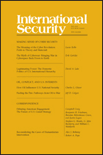
INTERNATIONAL SECURITY
Unraveling contemporary challenges in global security.INTERNATIONAL SECURITY is a premier academic journal published by MIT PRESS, dedicated to advancing scholarly discourse in the fields of Law, Political Science, and International Relations. With an ISSN of 0162-2889 and an E-ISSN of 1531-4804, this highly regarded publication has established itself as a critical resource for researchers, professionals, and students since its inception in 1984. Renowned for its rigorous peer-review process and impactful articles, INTERNATIONAL SECURITY consistently ranks within the top quartile across multiple disciplines, achieving a remarkable Q1 classification in the latest 2023 metrics. Notably, it holds impressive positions in Scopus Ranks, including Rank #24 in Law and Rank #25 in Political Science and International Relations, reflecting its significant contribution to the field. Unfortunately, the journal does not currently offer open access options, but its comprehensive analyses of global security issues make it an invaluable tool for those seeking to deepen their understanding of contemporary challenges in the international arena. Whether you are a seasoned researcher or an emerging scholar, INTERNATIONAL SECURITY serves as a vital platform for exploring the intersections of security, policy, and global affairs.
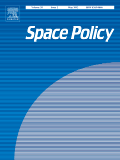
SPACE POLICY
Empowering Policymakers with Critical Space Insights.SPACE POLICY is a premier academic journal published by Elsevier Science Ltd that focuses on the interdisciplinary field of space policy, exploring the myriad issues that arise in the governance and strategic use of space resources. With an ISSN of 0265-9646 and an E-ISSN of 1879-338X, this journal addresses critical topics pertinent to economics, law, sociology, and political science, making it an essential resource for researchers, policymakers, and academicians. Since its inception in 1985 and continuing through to 2024, SPACE POLICY has garnered strong recognition, achieving Q1 and Q2 rankings in various categories as of 2023, indicating its significant impact in both theoretical and applied research. Although it operates on a subscription basis, the journal's commitment to delivering high-quality, rigorous research ensures it remains at the forefront of discourse on the socio-political implications of space exploration and utilization. Whether you are a seasoned researcher or a student delving into the complexities of space governance, SPACE POLICY provides a vital platform for advancing knowledge and debate in this rapidly evolving field.

Cybersecurity
Advancing Cyber Resilience Through Innovative ResearchCybersecurity, published by SpringerNature, serves as a pivotal platform in the realms of Artificial Intelligence, Information Systems, Software, and Computer Networks and Communications. With an impressive Impact Factor and an Open Access model initiated in 2018, this journal facilitates widespread dissemination of innovative research findings to a global audience. Based in the United Kingdom, Cybersecurity aims to advance knowledge and application in security innovations, risk management, and system resilience against cyber threats. The journal's current standing is prominently reflected in its Q1 and Q2 ratings across various computer science categories, indicating its reputable contribution to the academic community. By continuously publishing cutting-edge research, Cybersecurity plays a crucial role in informing policy decisions, advancing technology, and enhancing the collective understanding of cyber resilience, making it an essential resource for researchers, professionals, and students alike.

Journal of International Humanitarian Legal Studies
Navigating the Intersection of Law and HumanityJournal of International Humanitarian Legal Studies is a premier academic journal published by BRILL, focusing on the evolving landscape of humanitarian law within the context of international relations and global human rights. With an ISSN of 1878-1373 and an E-ISSN of 1878-1527, this journal provides an invaluable platform for scholars, practitioners, and students to explore significant legal issues, new theories, and policy approaches that inform humanitarian action and justice. The journal is held in high esteem, achieving a Q2 ranking in the field of Law as per the 2023 category quartiles and ranking #328 out of 1025 in the Scopus database, placing it in the 68th percentile. Though it does not currently offer open access options, its comprehensive and rigorous content makes it essential reading for those engaged in the study and practice of international humanitarian law. Published continuously from 2010 to 2024, the journal aims to foster interdisciplinary dialogue and bridge gaps between legal theory and practice.
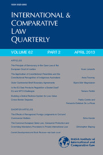
International & Comparative Law Quarterly
Shaping International Legal Discourse.International & Comparative Law Quarterly is a prestigious academic journal published by Cambridge University Press, renowned for its rigorous scholarship in the fields of law, political science, and international relations. With an impressive impact factor and classified in the Q1 category for both Law and Political Science and International Relations, the journal stands out as a leading platform for disseminating high-quality research. Established in 1952, it has been pivotal in shaping discourse around comparative and international legal frameworks through carefully curated articles, case studies, and analyses. Although not open access, its comprehensive content provides invaluable insights into contemporary legal challenges and political dynamics, making it essential reading for researchers, professionals, and students alike. With ongoing contributions from a diverse range of scholars, the journal aims to foster a deeper understanding of law in a global context and provide readers with the tools to navigate complex legal landscapes.

Journal of Computer Virology and Hacking Techniques
Decoding Hacking Techniques for a Safer Digital WorldWelcome to the Journal of Computer Virology and Hacking Techniques, a prestigious academic publication dedicated to the evolving fields of cybersecurity and digital threats. Published by Springer France, this open-access journal has been at the forefront of disseminating high-quality research since its inception in 2014. With an increasing impact in areas such as computational theory, hardware architecture, and software security, the journal holds a significant position, classified in the Q2 and Q3 quartiles across several categories in 2023. The journal aims to provide a platform for researchers, professionals, and students to explore the latest advances in combatting cyber vulnerabilities and understanding hacking techniques. In alignment with its open-access policy, the journal ensures that knowledge is readily available to a global audience, reinforcing its mission to enhance the scholarly discourse surrounding computer virality while adhering to rigorous academic standards.